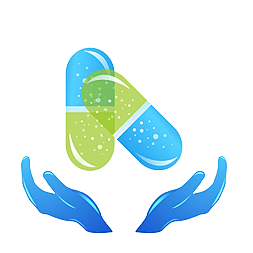Generic drugs play a vital role in the pharmaceutical industry, providing affordable alternatives to brand-name medications and contributing to improved access to healthcare worldwide. As a cost-effective option for patients and a competitive market segment for pharmaceutical companies, generic drugs have a significant impact on healthcare systems and the economy. In this article, we explore the importance of generic drugs, their benefits, regulatory framework, and considerations for patients and healthcare providers.
- What are Generic Drugs?
Generic drugs are medications that are developed and marketed after the patent expiration of brand-name drugs. They contain the same active ingredients, have the same dosage form, strength, and route of administration as the original brand-name drug. However, generic drugs may have different inactive ingredients, such as binders or fillers. They undergo rigorous testing and approval processes to ensure their safety, efficacy, and quality. - Benefits of Generic Drugs:
Generic drugs offer several important benefits for patients, healthcare systems, and the pharmaceutical industry: a. Cost Savings: Generic drugs are generally less expensive than brand-name medications, making them more affordable for patients and reducing healthcare costs. This affordability improves access to essential medications, especially for patients without insurance coverage or those in resource-constrained settings. b. Therapeutic Options: Generic drugs provide a wide range of therapeutic options, offering patients more choices for their treatment. This competition helps drive down prices and encourages innovation in the pharmaceutical industry. c. Quality and Safety: Generic drugs undergo rigorous testing and regulatory oversight to ensure their safety, efficacy, and quality. They must demonstrate bioequivalence to the brand-name drug, meaning they deliver the same amount of active ingredient to the body and produce similar therapeutic effects. d. Market Competition: The availability of generic drugs promotes healthy competition in the pharmaceutical market, encouraging innovation and driving down prices of brand-name medications. This competition can lead to overall cost savings for healthcare systems and consumers. - Regulatory Framework:
The approval and regulation of generic drugs vary across countries, but most have established regulatory bodies that oversee their safety and quality. In the United States, the Food and Drug Administration (FDA) reviews generic drug applications to ensure they meet the same rigorous standards as brand-name drugs. Other countries have similar agencies that evaluate and approve generic drugs based on their bioequivalence to the reference product. - Considerations for Patients and Healthcare Providers:
When considering the use of generic drugs, patients and healthcare providers should keep the following considerations in mind: a. Interchangeability: In many cases, generic drugs can be safely substituted for brand-name medications. However, there may be exceptions, particularly with complex formulations or narrow therapeutic index drugs. Patients should consult with their healthcare providers to ensure the appropriate use of generic drugs. b. Communication: Open communication between patients and healthcare providers is essential when considering the use of generic drugs. Patients should inform their healthcare providers about any concerns or issues they may have, and healthcare providers should discuss the benefits, risks, and availability of generic options. c. Brand Recognition: Patients may have a preference for brand-name medications due to familiarity or perception of superior quality. Educating patients about the safety, efficacy, and cost savings associated with generic drugs can help overcome these concerns. d. Adherence to Medication Regimens: Generic drugs provide an opportunity to improve medication adherence by reducing the financial burden on patients. Patients who can afford their medications are more likely to adhere to their prescribed treatment regimens, leading to better health outcomes.
Generic drugs have revolutionized the pharmaceutical industry, making essential medications more affordable and accessible to a broader population. They are a critical component of healthcare systems worldwide, providing therapeutic options, driving competition, and reducing healthcare costs. By leveraging the benefits of generic drugs, patients, healthcare providers, and society as a whole can benefit from improved access to high-quality, cost-effective medications.


